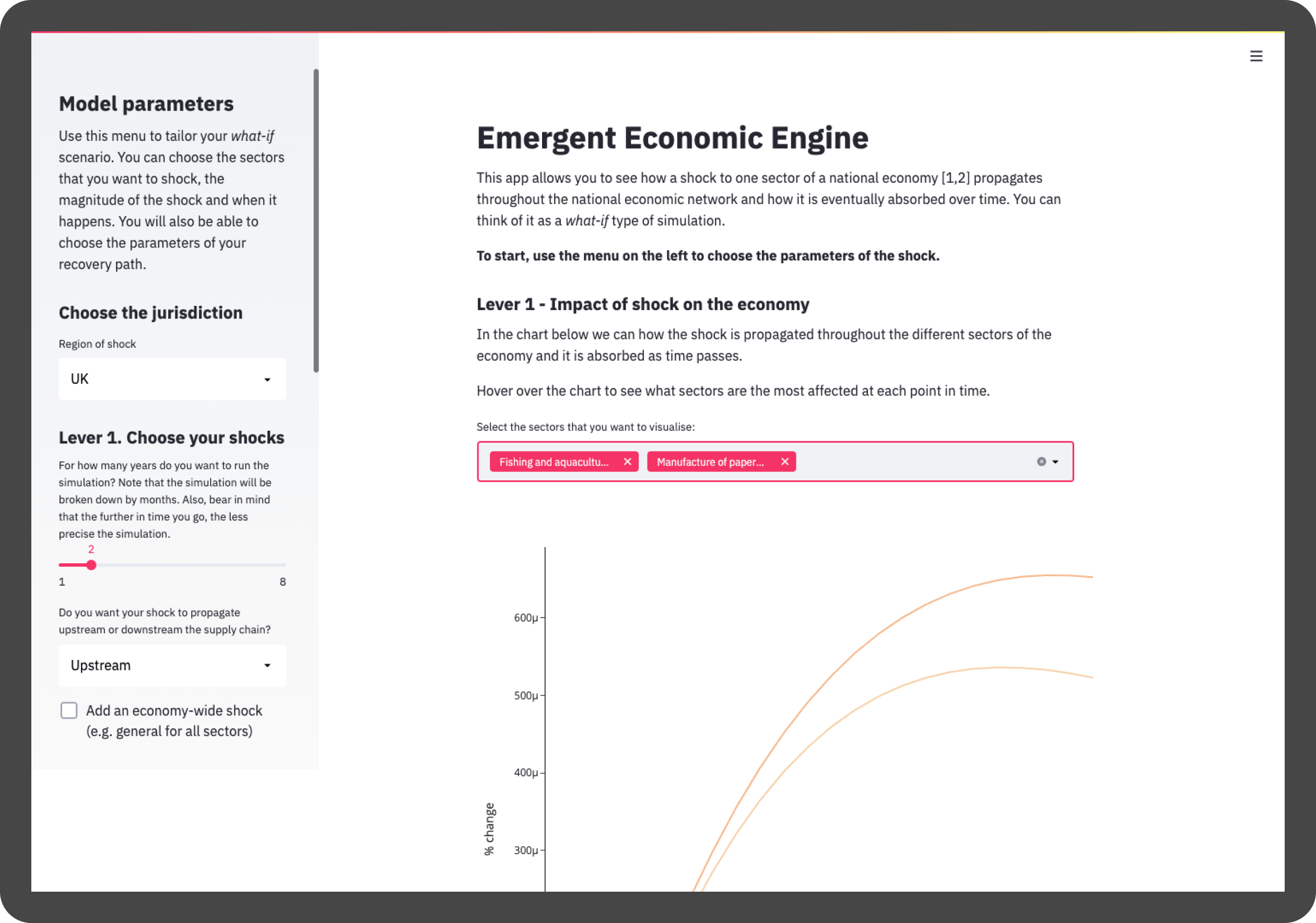E3 – powered by data and proven models
We have published two blogs about the underlying model and the app, which can be read here and here. The underlying code is accessible in our Github repo.
The E3 app is the result of our work to assess the impact of Covid-19 on economic networks by modelling it as an exogenous shock. The effect of this shock is modelled following the approach investigated in Klimek et. al. (2019). In this context, the initial shock propagates across time (dynamic effect) and sectors (Input-Output table). As part of this work, an analytical strategy was developed which models the impact of counter-strategies such as subsidies against the economic depression caused by the shock. The approach is to represent a stimulus in the form of extra resources injected into the system by external actors such as governments or other public authorities. Here we keep our approach at a relatively high level of abstraction, in the sense that we do not provide any guidance on how to inject the resources into the system, but rather assume that the resources get to the system.
The building block of our approach is Leontief’s Input-Output model. This model is based on the idea that sectors in an economy are interconnected through input-output linkages. In other words, part of what one sector produces is used as an input by other sectors.
The practical purpose of our work is to help policymakers and business leaders understand the likely macroeconomic consequences of lockdown measures, in particular the impact on specific sectors.
About the Authors
We are a team of data scientists from IBM’s Data Science & AI Elite Team, IBM’s Cloud Pak Acceleration Team, and Rolls-Royce’s R2 Data Labs working on Regional Risk-Pulse Index: forecasting and simulation within Emergent Alliance. Have a look at our challenge statement!
Let us know what you think. Fill in the form with your feedback below.

